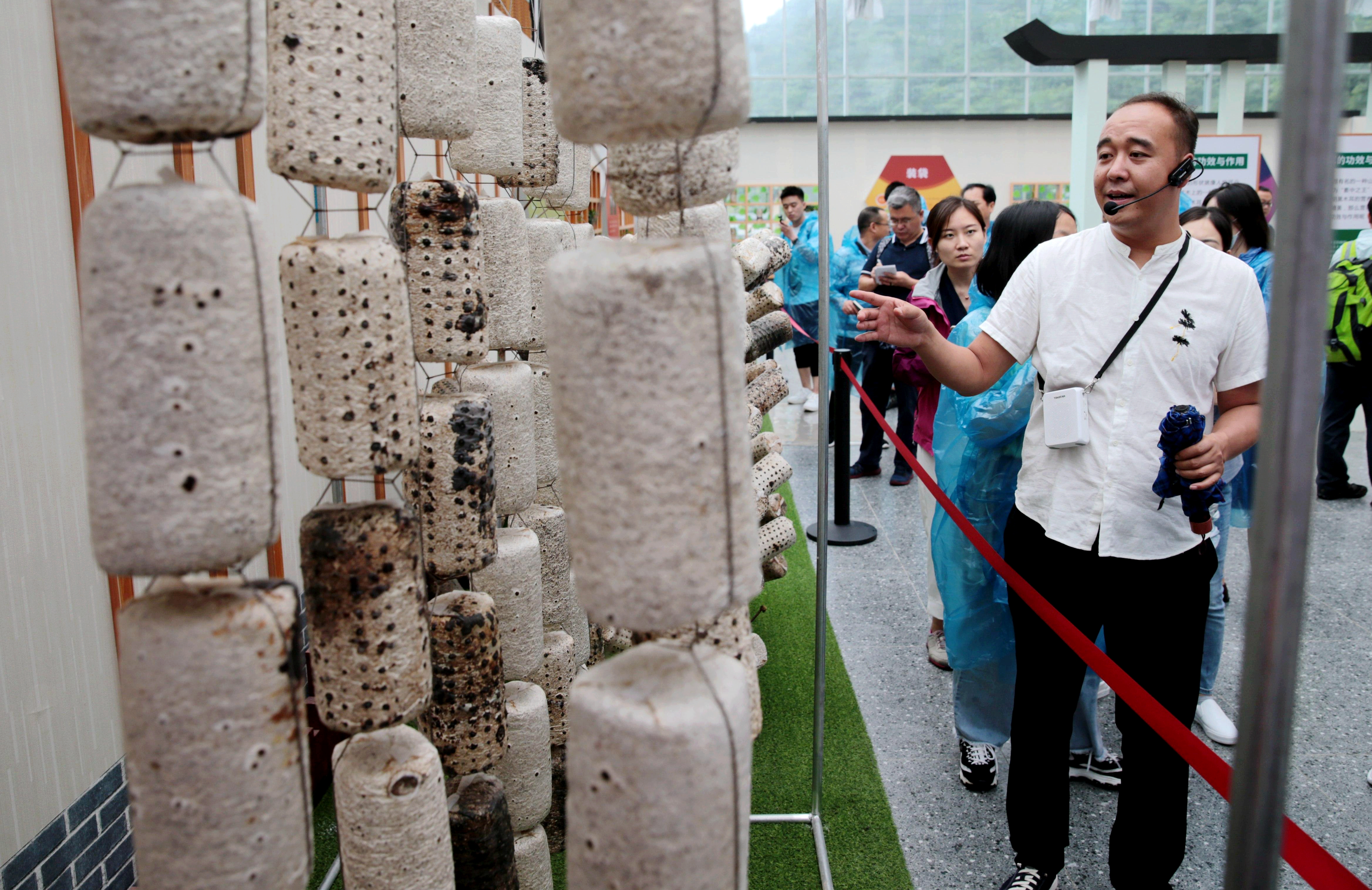Livestreams see edible fungi sales mushroom


Becoming richer
In recent years, Jinmi has shaken off poverty by developing an industry based on black fungus.
By the end of last year, 549 of the 553 residents had been lifted out of poverty, accounting for 187 of the 188 households, according to local authorities.
Chen Qinghai, a 44-year-old resident, was once mired in poverty. Before the fungi industry was established, he worked part time in nearby mines, earning less than 20,000 yuan a year.
"Two years ago, when my wife was in poor health, some cadres from our village called to offer me the opportunity to plant black fungus," he said.
Chen left the mines and returned to the village early last year to build a greenhouse to grow the fungi.
He used 50,000 mushroom bags to grow black fungus, earning 30 yuan per 500 grams via offline sales.
However, once he started selling his produce via livestreams, his income soared.
"In the first half of this year, I earned more than 30,000 yuan by planting fungi. That's much more than I made in a year working at the mine," he said.
The father of three said his big wish is to buy a car and take his family for a drive.
In 2016, he and his family left their house deep in the Qinling Mountains and moved into a newly built house in the village.
The following year, the household was lifted out of poverty.
Lai Shengtao, first secretary of poverty alleviation in Jinmi, said the humid climate in the mountainous area had provided many job opportunities for village residents and attracted a number of talented people.
Jinmi has the perfect conditions for the cultivation of fungi, which thrive on dampness and humidity, according to Lai.
"An industry chain was formed around the planting of black fungus, which allowed many villagers to find jobs that suited them and doubled their incomes," he said.
"What we do, mostly, is have a lot of villagers planting fungi in their own greenhouses. After they harvest the mushrooms, companies take over and sell the produce either online or offline."
He added that the villagers are not required to spend their own money on spore bags and other equipment. Instead, local agricultural cooperatives undertake preparation of the raw materials.
"Otherwise, the villagers would have to manage and maintain the whole process of planting the fungi and then harvesting it when the time came," he said.
The industry has brought considerable benefits to the villagers, as each year around 3 million spore bags produce 150 metric tons of black fungus.
"In the future, I hope more people from different sectors will join this industry chain to make the fungi our magic wand to eradicate poverty," Lai said.
























